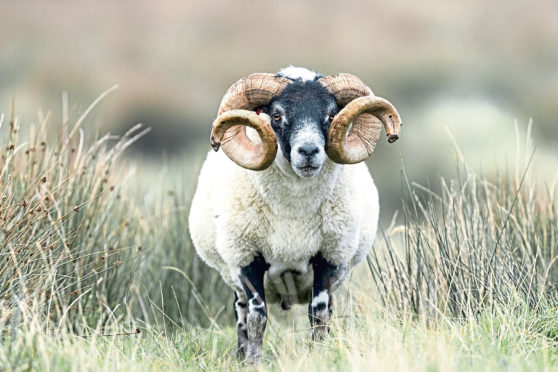Rural Economy Secretary Fergus Ewing has written to the UK Government seeking urgent changes to rules for exporting sheep to Northern Ireland after Brexit.
In a letter to Defra Secretary of State, George Eustice, Mr Ewing said the new rules would have a negative impact on the ability of Scottish sheep breeders to export their stock across to Northern Ireland.
The bulk of sheep trade between Scotland and Northern Ireland is for Blackface sheep, and the Blackface Sheep Breeders’ Association estimates £1.8 million worth of breeding sheep are traded between Britain and Northern Ireland every year, with the bulk coming from Scotland.
The new rules, which come into force on January 1 2021, require all Scottish sheep being exported to Northern Ireland to have come from holdings that are members of the Scrapie Monitoring Scheme, operated by Scotland’s Rural College.
“This would take three years to fulfil and the alternative of individual genotyping would be prohibitively expensive,” said Mr Ewing in his letter to Mr Eustice.
“Other new requirements are that animals must be resident in the exporting flock for 40 days prior to export and they cannot be exported via a market.
“These are in addition to the existing Daera (Ireland’s department of agriculture) requirement that these animals must be tested for and free-from Maedi-Visna at around one year of age, prior to export in order to keep Northern Ireland free from this disease.”
Mr Ewing called on the UK Government and the European Commission to find an alternative to the new Scrapie rules, which arise from the Northern Ireland Protocol, and are in addition to a post-Brexit requirement for all animals being exported to have an export health certificate.
Aileen McFadzean from the Blackface Sheep Breeders’ Association backed Mr Ewing’s call and said the new Scrapie monitoring rules could have a “disastrous effect” on the sheep industry in both Scotland and Northern Ireland.
She said: “There are only 200 flocks within GB and very few in Scotland that are Scrapie-monitored and no Blackface flocks.”
She said approximately 9,000 breeding sheep had been exported from Great Britain to Northern Ireland so far this year, mainly from Scotland and the majority being Blackface sheep bought through auction marts and privately.
Loss of this trade would be a “huge loss” to Scottish hill farmers and Northern Ireland Blackface breeders who rely on Scottish genetics, added Ms McFadzean.
She said there were also concerns about Scottish stock already purchased by Northern Ireland breeders, but being overwintered in Scotland with the intention of travelling to their new homes in the New Year – estimates suggest as many as 7,000 ewe lambs could be in this situation.
NFU Scotland president Andrew McCornick said: “We welcome this action by the Scottish Government and hope that the UK Government can work toward a solution that prevents the establishment of a barrier.”
A Defra spokesman said: “We are considering the new Scrapie requirements for breeding sheep moving between Great Britain and Northern Ireland and are working to minimise any disruption to the farming sector at the end of the transition period.”
